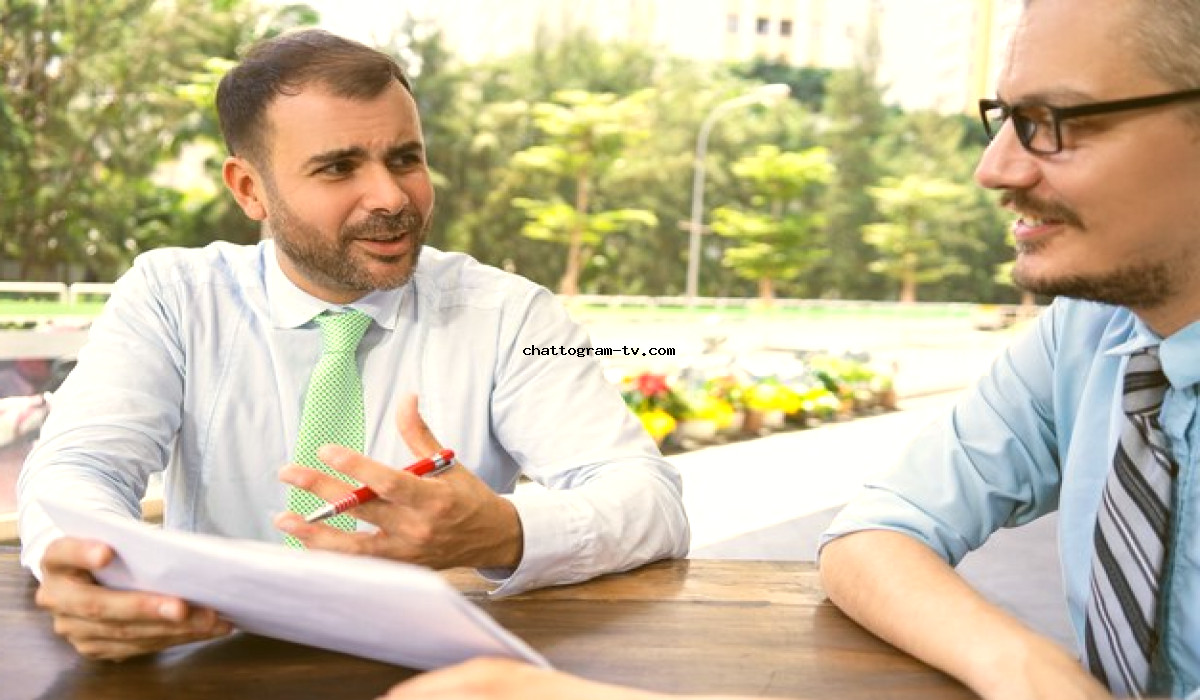Top 5 Ways Of Looking At Our Mistakes. Looking at our mistakes can be a valuable learning experience. In this blog post, we explore the top 5 ways to approach and learn from our mistakes.
Top 5 Ways Of Looking At Our Mistakes
From embracing failure to seeking feedback, these strategies can help us grow and improve. Read on to discover how you can change your perspective on mistakes and turn them into opportunities for growth.
1. Embrace Failure as a Learning Opportunity
– Learn from your failures: Instead of dwelling on your mistakes, analyze what went wrong and identify lessons learned.
– Adopt a growth mindset: Embracing failure as a natural part of the learning process allows you to view setbacks as opportunities for personal development.
– Reframe failure as progress: Understand that every mistake brings you one step closer to success by providing valuable insights and experiences.
2. Seek Feedback and Learn from Others
– Be open to constructive criticism: Feedback from others can provide valuable insights and perspectives that may not be apparent to you.
– Surround yourself with diverse opinions: Engage with people who have different backgrounds and perspectives to gain fresh insights into your mistakes.
– Actively listen: Pay attention to feedback without becoming defensive or dismissive, as it can offer valuable guidance for improvement.
3. Practice Self-Reflection and Accept Responsibility
– Take ownership of your mistakes: Acknowledge your role in the error and take responsibility for the consequences.
– Reflect on your actions: Analyze what led to the mistake and consider how you can avoid similar errors in the future.
– Learn from patterns: Look for recurring mistakes or behaviors that may be hindering your progress, and actively work on addressing them.
4. Emphasize Learning Over Perfection
– Shift focus from perfection to progress: Instead of striving for flawless outcomes, prioritize continuous learning and improvement.
– Celebrate small victories: Recognize and appreciate the growth and development that comes with each step forward, regardless of any mistakes made along the way.
– Embrace a growth mindset: View challenges as opportunities to learn and develop new skills rather than as indicators of personal shortcomings.

5. Use Mistakes as Catalysts for Innovation
– Encourage creativity: Mistakes often lead to innovative solutions and ideas that may not have been discovered otherwise.
– Experiment with new approaches: Take risks, try different strategies, and learn from both successes and failures to foster innovation.
– Foster a culture of learning: Create an environment where mistakes are seen as opportunities for growth, encouraging individuals to take calculated risks without fear of judgment or punishment.
By adopting these five ways of looking at our mistakes, we can transform our perspective on failure. Rather than seeing mistakes as setbacks or sources of shame, we can view them as valuable stepping stones towards personal growth and success. Embrace failure, seek feedback, practice self-reflection, emphasize learning over perfection, and use mistakes as catalysts for innovation. Remember, it’s not about avoiding mistakes altogether but rather how we choose to respond and learn from them that truly matters..
Top 5 Ways Of Looking At Our Mistakes
What is the importance of reflecting on our mistakes?
– Self-improvement: Reflecting on our mistakes allows us to identify areas for improvement and develop strategies to avoid repeating them in the future. It helps us grow and become better versions of ourselves.
– Learning opportunities: Mistakes provide valuable lessons that can contribute to personal and professional growth. By analyzing our errors, we gain insights into what went wrong and how we can prevent similar situations from occurring again.
– Building resilience: Viewing mistakes as learning experiences helps build resilience. Embracing failure as a stepping stone towards success allows us to bounce back stronger and persevere through challenges.
– Enhancing decision-making skills: Reflecting on past mistakes enables us to make more informed decisions in the future. By understanding the consequences of our actions, we can make wiser choices and avoid repeating previous errors.
– Strengthening relationships: Acknowledging our mistakes and taking responsibility for them fosters trust and transparency in relationships. It shows humility and a willingness to learn from our missteps, ultimately strengthening connections with others.
How can we change our perspective on mistakes?
– Embrace a growth mindset: Adopting a growth mindset means viewing mistakes as opportunities for learning rather than failures. Recognize that making mistakes is an essential part of the learning process and focus on continuous improvement.
– Practice self-compassion: Instead of being overly critical or judgmental towards ourselves when we make mistakes, show yourself compassion. Treat yourself with kindness, understanding that everyone makes errors, and use them as stepping stones for growth.
– Seek feedback: Actively seek feedback from others to gain different perspectives on your mistakes. This can provide valuable insights and alternative viewpoints that you may not have considered, helping you learn and grow from your errors.
– Analyze the root causes: Take the time to reflect on the underlying reasons behind your mistakes. Identify patterns or recurring factors that contribute to your errors, allowing you to address them directly and prevent future mishaps.
– Focus on solutions: Instead of dwelling on your mistakes, shift your focus towards finding solutions. Develop action plans or strategies to rectify the situation and prevent similar errors in the future.
How can we learn from our mistakes?
– Accept responsibility: Acknowledge your role in the mistake and take ownership of it. Avoid blaming others or making excuses, as this hinders personal growth and learning opportunities.
– Reflect on the experience: Take time to reflect on what went wrong and why. Consider the impact of your actions, as well as any contributing factors or external influences that may have influenced the outcome.
– Extract lessons learned: Identify specific lessons or insights gained from the mistake. Determine what you could have done differently and how you can apply these newfound understandings to future situations.
– Make changes: Use what you’ve learned from your mistakes to make positive changes moving forward. Implement new strategies, behaviors, or approaches that align with the lessons learned, ensuring a more successful outcome in similar situations.
– Share experiences with others: Discussing your mistakes with trusted individuals can provide additional perspectives and insights. It also allows others to learn from your experiences, fostering a culture of continuous improvement.
How can we avoid repeating the same mistakes?
– Learn from past experiences: Reflect on previous mistakes and the lessons learned from them. Use this knowledge to inform your decision-making process and avoid making similar errors in the future.
– Develop self-awareness: Be mindful of your tendencies, weaknesses, and triggers that may lead to mistakes. By understanding yourself better, you can anticipate potential pitfalls and take proactive measures to prevent them.
Top 5 Ways Of Looking At Our Mistakes
– Seek guidance: Consult with mentors, coaches, or trusted individuals who can provide guidance and support in areas where you tend to make mistakes. Their insights and advice can help you navigate challenges more effectively.
– Implement checks and balances: Create systems or processes that act as checkpoints to catch potential mistakes before they occur. This could involve double-checking work, seeking input from others, or implementing quality control measures.
– Continuously learn and adapt: Embrace a mindset of continuous learning and improvement. Stay updated on industry trends, best practices, and new techniques that can help you avoid common pitfalls.
The Future of Top 5 Ways Of Looking At Our Mistakes
As we move into the future, the concept of looking at our mistakes will continue to be relevant and essential for personal growth and development. Here are some ways in which this topic is likely to evolve:
1. Technology-driven self-reflection tools
With advancements in technology, we can expect the emergence of innovative tools designed to facilitate self-reflection on our mistakes. These tools may leverage artificial intelligence (AI) algorithms to analyze patterns in our behavior, identify areas for improvement, and provide personalized feedback.
2. Integration with virtual reality
Virtual reality (VR) technology has the potential to revolutionize how we reflect on our mistakes. By immersing ourselves in virtual environments that simulate real-life scenarios, we can experience the consequences of our actions and learn from them in a safe and controlled setting.
3. Enhanced data analytics for self-assessment
As data analytics capabilities continue to improve, individuals will have access to more comprehensive insights into their mistakes. Advanced algorithms can analyze vast amounts of data, identify patterns, and provide actionable recommendations for personal growth and improvement.
Top 5 Ways Of Looking At Our Mistakes
4. Collaboration and learning communities
The future will likely see the rise of online communities focused on collaboration and shared learning from mistakes. These platforms will facilitate discussions, knowledge-sharing, and support networks where individuals can learn from each other’s experiences and collectively grow.
5. Emphasis on psychological safety
Psychological safety will become a crucial aspect of looking at our mistakes in the future. Creating an environment where individuals feel safe to admit their errors without fear of judgment or negative repercussions fosters a culture of continuous improvement and innovation.
Frequently Asked Questions (FAQs)
How do I overcome the fear of making mistakes?
Facing the fear of making mistakes involves reframing your mindset and embracing failure as an opportunity for growth. Recognize that mistakes are a natural part of life and view them as stepping stones toward success rather than signs of failure.
Is it necessary to dwell on past mistakes?
While reflecting on past mistakes is essential for learning, dwelling on them excessively can hinder progress. Use your past errors as lessons learned but focus more on implementing positive changes moving forward.
How can I ensure that I don’t repeat the same mistakes?
To avoid repeating the same mistakes, learn from past experiences, develop self-awareness, seek guidance from others, implement checks and balances, and continuously adapt and learn. By taking these proactive measures, you can minimize the likelihood of making similar errors.
How can reflecting on our mistakes improve decision-making?
Reflecting on our mistakes enhances decision-making by providing valuable insights into the consequences of our actions. It allows us to consider alternative approaches, anticipate potential pitfalls, and make more informed choices based on past experiences.
Can looking at our mistakes strengthen relationships?
Yes, acknowledging our mistakes and taking responsibility for them fosters trust and transparency in relationships. It shows humility and a willingness to learn from our missteps, ultimately strengthening connections with others.
How can I develop a growth mindset when it comes to mistakes?
Developing a growth mindset involves recognizing that mistakes are opportunities for learning rather than failures. Embrace challenges, view setbacks as stepping stones toward improvement, and focus on continuous learning and development.
What role does self-compassion play in looking at our mistakes?
Self-compassion is crucial when reflecting on our mistakes. Instead of being overly critical or judgmental towards ourselves, practice self-kindness and understanding. Treat yourself with the same compassion you would offer to a friend who made a mistake.
